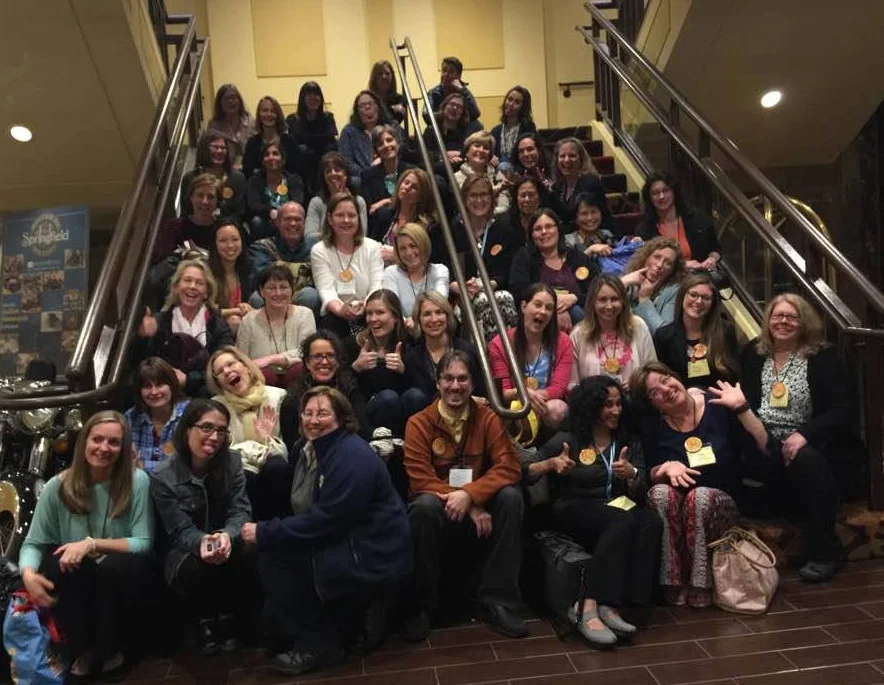2017 Children's Author Survey - A Prelude
I like writers and illustrators. They are my people.
Me and a few of my 12x12 Picture Book Writing Challenge friends.
Every once and a while, I find someone passing out bad business advice to creatives—advice that would set them up for failure. Sometimes it's even well intentioned. It still makes my blood boil. This career is hard enough without bad advice.
The truth is, it's hard to know what to expect as an author in the publishing business. Advance numbers tend to be shared in hushed tones among friends, and if you're a new writer just starting out...GOOD LUCK finding anything concrete.
That is until now.
I designed an anonymous survey that gives authors and illustrators better access to statistics about publishing.
Spoiler alert: children's publishing is unlikely to make you rich. But how much money should you expect? How long will it take to break into traditional publishing? And how do you know if you are good enough?
I'll answer many of these questions soon but let's tackle one right now: Are you good enough?
The answer is YES!
YOU are good enough.
Whoever you are, wherever you are in your career, you are worthy. Your desire to create and share is worthwhile and noble. You deserve the time it takes to practice telling your story well.
Now let's separate two thoughts that I sometimes see used interchangeably: 1) Am I good enough, and 2) Will my work sell to a major publisher?
The first part has the obvious answer: Yes! If nobody else tells you this today, I think you are good enough to create!
But will your work sell? I don't know. I've sold books to two major publishing houses, and I don't even know if my next book will sell.
There's so much that goes into "selling" that has very little to do with "good enough."
Selling ≠ Good Enough
Why are some stories published and others not? Here're a few reasons:
- Platform. A celebrity with a large fan base can publish things the average author cannot.
- Relationships. An established author or the cousin of an editor can sometimes publish things beginning authors cannot.
- Taste. You might not like it, but maybe there's a huge market for spiders in underwear.
- Competition. If a book from Big Name author was just released about spiders in underwear, it's going to be really hard to sell that type of book. It's also going to be harder to publish a picture book about birthdays than a book about spiders in underwear because there are already sooooo many birthday books. The writing in your book has to be "strong enough" and "different enough."
- It's too different. There's "different enough" and then there's "too different." Publishers take some risks with their lists, but at the end of the day they have to pay the bills. A book about cross-dressing spiders in underwear might be "too different" for the pre-K audience. But maybe not. They only way to know is to try and accept honest feedback on your work.
- Other reasons! I can't list all reasons a book might not sell. Maybe the editor woke up in a bad mood. Maybe they've purchased too much already that year. Maybe that editor thinks the moon is really made of cheese...
There are many things outside your control, so what can you control?
You control your craft and how much you submit.
Do everything you can to write the best darn stories you can. Read as many books as you can in your genre. Read books on craft. Become really familiar with your local library and booksellers. :)
Then, take some (moderately priced) classes—preferably through a legitimate writing organization like the Society of Book Writers and Illustrators. I don't recommend spending thousands of dollars on a special 30 minute critique from your dream author, editor, or agent. You'll get much more bang for your buck by just writing and writing and writing...and finding a good critique group.
So, write on and remember:
1) Selling Your Story Doesn't Determine Your Worth
2) YOU = GOOD ENOUGH
3) Persistence and Patience are Prerequisites to Publishing

